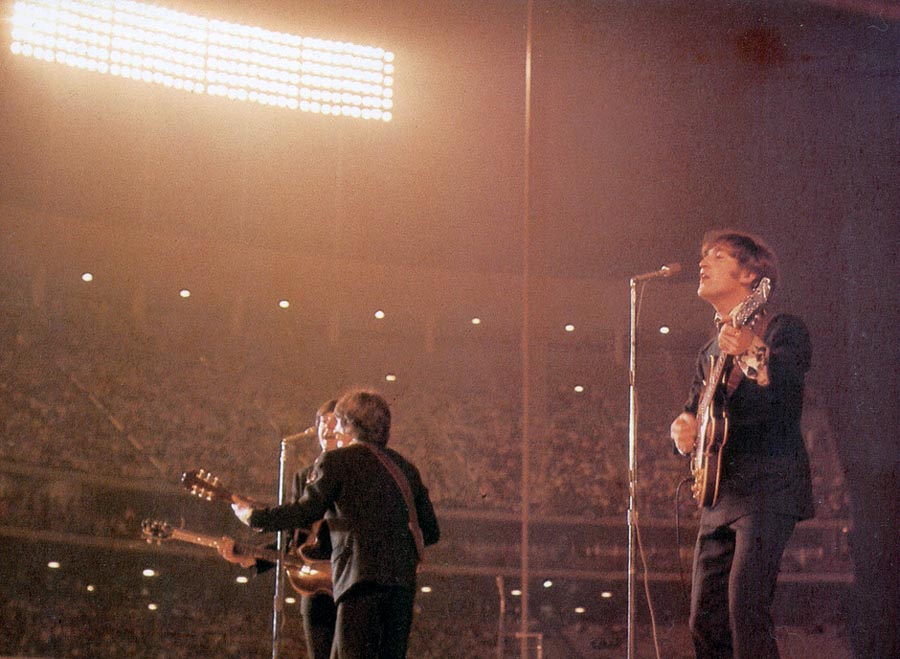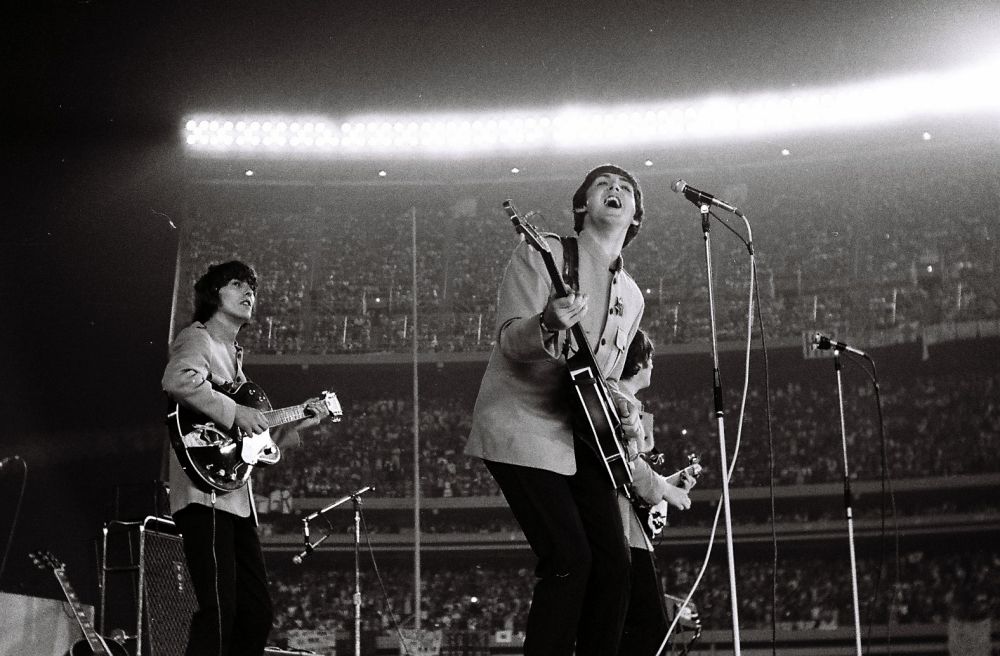The Beatles may have propelled the growth of stadium rock and roll with their 1965 and 1966 U.S. tours, but these days MLB ballparks are seeing an increased use as concert venues, as evidenced by the new deal struck by the Los Angeles Dodgers owners to bring more big events to Dodger Stadium.
These days a concert isn’t just a concert — it’s a major event, playing out more and more in America’s biggest venues. We’ve had big ballpark concerts since the Beatles conquered Metropolitan Stadium, Comiskey Park, Shea Stadium (as shown above), Atlanta-Fulton County Stadium, RFK Stadium, Cleveland’s Municipal Stadium and yes, Dodger Stadium in 1965 and 1966 tours, but it’s safe to say we’ve not seen so many big concerts in so many big-city ballparks as we’re seeing this summer. Dead and Company (featuring Bob Weir, Bill Kreutzmann and Mickey Hart of the Grateful Dead and the likes of John Mayer), James Taylor, Billy Joel and Pearl Jam are all set to play Fenway Park, while Phish, James Taylor, Luke Bryan, Billy Joel and Pearl Jam are set to play Wrigley Field. (That Billy Joel has a busy summer lined up — he’s also playing Safeco Field, PNC Park, Citizens Bank Park, Petco Park and Nationals Park.) Beyonce will be making international headlines on a summer tour that hits Marlins Park, Qualcomm Stadium, Rogers Centre and Citi Field, among other large venues. And we’ve also seen big concerts in recent years at Target Field and AT&T Park.
The Los Angeles Dodgers ownership — Guggenheim Baseball Management — are upping the ante on the ballpark as concert venue with a deal with Oak View Group, a new venture from Tim Leiweke and Irving Azoff, to bring big-name concerts to Dodger Stadium. As noted, Dodger Stadium has a place in history as a ballpark hosting The Beatles in 1966 (as shown at the top of this story) and plenty of other big concerts since: Elton John in 1975, David Bowie in 1990, the Rolling Stones in 1997 — but the deal with Oak View Group has a chance to be even bigger. Why? Because of the power of Leiweke and Azoff to bring big names to the proceedings.
Leiweke, in particular, brings some juice to Dodger Stadium: as head of AEG Live, he interacted with every big act in the past several years. Azoff, of course, is a legend in the entertainment industry. Between the two of them, there are enough connection to recast the live-music world, creating the sort of competition sorely needed.
The economics are ridiculously compelling: the Dodgers use Dodger Stadium for just 83 dates (81 regular-season games, two more preseason exhibition games), and concert filling the many open dates is pure gravy. Now, there are some physical considerations — the turf must be protected, and a concert must fill one of those two or more open series, where the Dodgers pay six or more games on the road — but those can be easily addressed. From the Los Angeles Times:
Leiweke’s new venture puts him in competition with his former employer, AEG, which owns Staples Center and the L.A. Live complex that also boasts the Microsoft Theater.
Oak View’s client roster includes Madison Square Garden in New York, which owns the Forum in Inglewood, and Prudential Center in Newark, N.J. The Forum competes directly with AEG’s Staples Center for top musical acts.
A key part of Oak View’s mission is to help sports arenas and big music venues generate more revenue by signing on major sponsors and attracting popular bands and artists.
Leiweke spent 17 years in Los Angeles as the public face of AEG, helping to revitalize downtown L.A., before being edged out in a corporate shake-up in 2013. He then spent 21/2 years running the Toronto-based Maple Leaf Sports and Entertainment group.
When Leiweke and Azoff, a well-known music power player, formed Oak View Group late last fall, they described their new firm as an entertainment advisory, development and investment company.
AEG has become the major force in the booking world, but Oak View Group has the chance to create a more competitive playing field.


